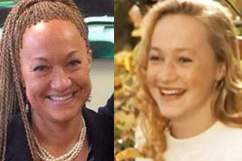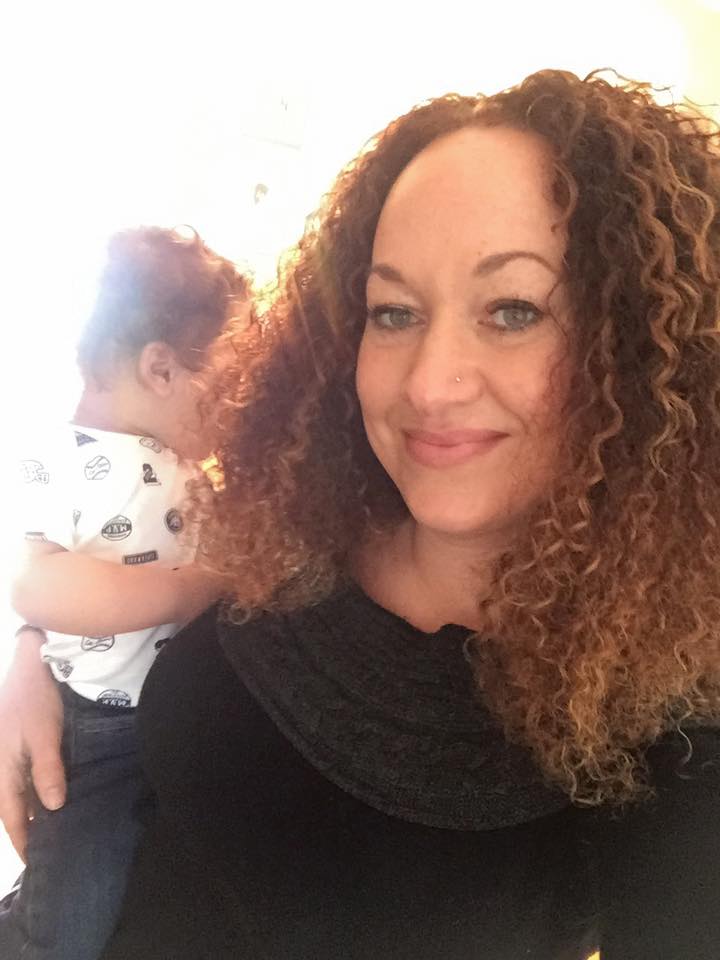
Rachel Dolezal/Nkechi Diallo and son (Facebook)
Rachel Dolezal, the former president of the NAACP chapter in Spokane, Washington, first made international headlines in June 2015 when she walked away from a local TV reporter who asked her if both of her parents were white. (They are.) Though her brother Ezra claimed at the time that Dolezal’s African-American appearance was a form of “blackface,” Dolezal herself insisted that she was actually “transracial.”
Since then, Dolezal has written a book, In Full Color: Finding My Place in a Black and White World, which came out on March 28. Here’s five things you need to know about how her life’s been going since she first became infamous:
1. She Changed Her Name to “Nkechi Amare Diallo”
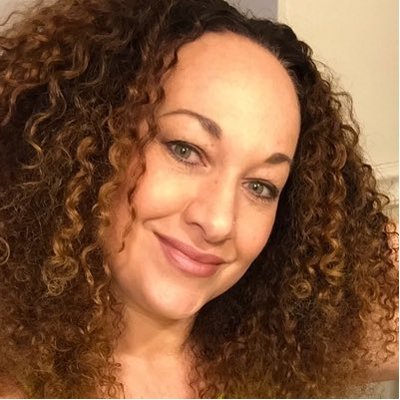
Rachel Anne Dolezal (Twitter)
Last October, Dolezal filed legal documents to change her name to “Nkechi Diallo” (though she still goes by her birth name on Facebook and Twitter).
Nkechi means “gift of God” or “what God has given” in the Igbo langage of Nigeria. Diallo means “bold” in the language of the Fula people found throughout West Africa. Dolezal/Diallo says her new name was a “gift” from a Nigerian man.
Dolezal still plans to use her birth name as her public persona, but hopes her new legal name will make it easier for her to find a job with employers who might be reluctant to hire the notorious “Rachel Dolezal.” “Maybe if I applied with a new name, people would see me for the qualifications and expertise on my resume, and not toss my application in the trash based on my name,” she said.
Shortly after her name change, she filed a Change.org petition as Nkechi Diallo, asking TED talks to post a TEDx talk that Rachel Dolezal gave in April 2016 at the University of Idaho. In that TEDx talk (which TED did post in Nov. 2016, calling it “a doubtless flawed attempt to do the right thing y all our constituencies”), Dolezal asked the mostly white audience “Is the identity that you were assigned at birth the best description of who you really are and what your purpose is for being in the world? …. What is life if we can’t draw our own pictures and write our own stories?”
2. She Says She is Jobless and on the Verge of Homelessness
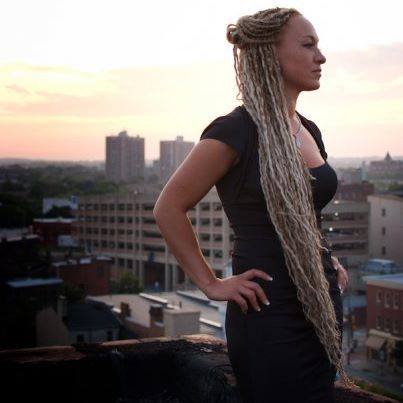
Rachel Dolezal (Facebook)
In February, still using the name Rachel Dolezal, she gave an interview to The Guardian to discuss her then-upcoming book and how her life had changed since the summer of her notoriety.
Dolezal said that despite applying for over 100 jobs, she’s been unable to find any work even as a supermarket shelf-stocker; the only positions she’s been offered are in reality TV, and porn. A friend paid her most recent rent, and she’s been relying on food stamps to feed herself and her family. “Right now the only place that I feel understood and completely accepted is with my kids and my sister,” she said.
Shortly after losing her college-lecturing job and NAACP position in 2015, she made some money doing African-style hair braiding. More recently, she says she’s been selling artwork to her friends.
3. She Refuses to Apologize
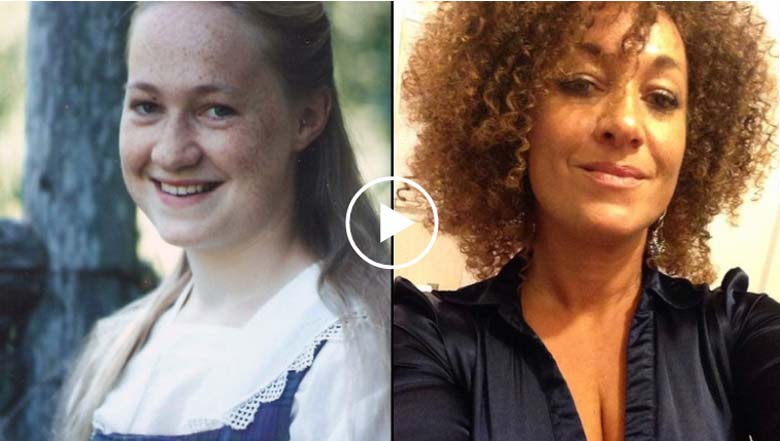
When the Guardian asked Dolezal/Diallo if she felt she had done anything wrong, she said, “No, I don’t. I don’t think you can do something wrong with your identity if you’re living in your authenticity, and I am. If I thought it was wrong, I would admit it. That’s easy to do, especially in America. Every politician, they’re like, ‘I’m sorry’ and then they just move on and everybody’s like, ‘Oh, they apologized and it’s all good’. Five minutes later, nobody remembers it. I’m not going to stoop and apologize and grovel and feel bad about it. I would just be going back to when I was little, and had to be what everybody else told me I should be – to make them happy.”
Dolezal also offered an explanation for another anecdote which increased her notoriety in the summer of 2015: while she was a student at the HBCU Howard University, the university rescinded her scholarship at the end of her first year, so she sued on two grounds: gender discrimination (since she was heavily pregnant at the time), and racial discrimination – because she was white.
Dolezal blames this on her lawyer, saying he “latched on” to the fact that her school adviser responded to her scholarship-loss concerns by telling her that her white relatives could probably pay her tuition. “I didn’t understand,” Dolezal said. “I wasn’t a law expert. I don’t know precedents. I don’t know all these strategies and ways to fight a case…. It sounds bad, right. It sounds like I just played that card for my advantage. But I just knew that if I did not have my scholarship, we were going to lose our apartment and [then-husband] Kevin was going to have to drop out of school.”
4. Her Critics Mostly Condemn Her Lies Rather Than Her Chosen Identity
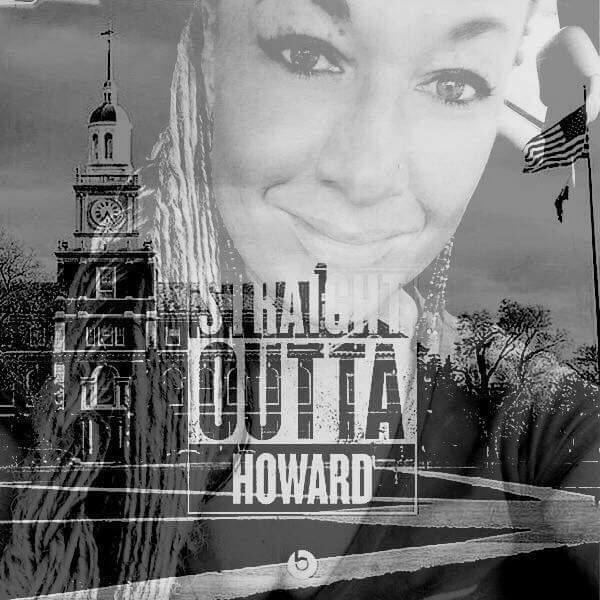
Rachel Dolezal “Straight Outta Howard” (Facebook)
It was at Howard University, Dolezal/Diallo says, where she was first introduced to the idea that racial identity was “an invention of human beings,” largely invented by colonial-era Americans to justify giving paler-skinned people power over those with darker complexions. “This was a great awakening for me,” she told the Guardian, “because it meant I wasn’t forced to own whiteness. It wasn’t like the honest thing to do is say, ‘I’m white’, because race is a social construct.”
But what Dolezal seems not to understand is that the majority of criticism directed against her is not based on the fact that an American woman born with pale skin, straight blonde hair and other “white person” traits chose to alter her appearance and identify with so-called “black” culture, but the lies she told about her own upbringing to justify this.
Dolezal was born, raised and home-schooled in Montana by two white Christian parents. But in June 2015, shortly after the scandal over her parentage first made the news, her local newspaper, the Spokane Spokesman-Review, reported that Dolezal claimed her father had been a black police officer in Oakland, California — who fled there from the “Deep South” after attacking an abusive, racist white police officer. Earlier in 2015, during an interview with radio station KYRS, Dolezal built upon that story by saying “As a black family in the Deep South, if you had any kind of a negative altercation with a … white cop – where you stood up for yourself – then it would go badly.”
Dolezal mentioned these supposed experiences when she sought an appointment to Spokane’s police oversight commission in 2014. She resigned from that position in the summer of 2015, after her true parentage became known.
More recently, James Wilburn, a former head of the Spokane NAACP, said Dolezal/Diallo should “Just come out and tell the truth. She struggles with that.”
5. She Now Identifies as “Trans-black,” not “Transracial”
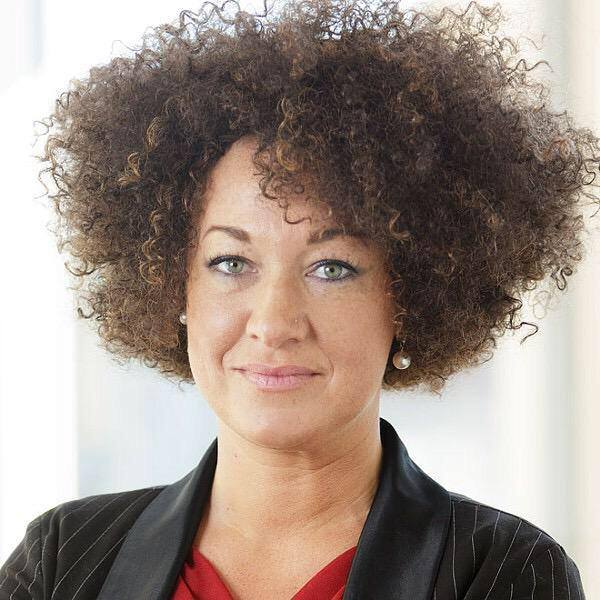
Rachel Dolezal in 2015 (Facebook)
In her new book (published under the Rachel Dolezal name), Diallo describes herself as “trans-black,” and say she checks “black” when asked to identify her race on official forms offering only one option.
“If a form provides multiple boxes, I’ll check white, native and black,” she said in an interview with PI11-TV. “That’s acknowledging how I was born, how I identify. If I select one only, I’ll select black.”
Despite earlier claims of being the daughter of a black police officer from the Deep South, Dolezal’s book describes her life growing up as a white girl in Montana—homeschooled, largely isolated from society and not even allowed to watch television.
